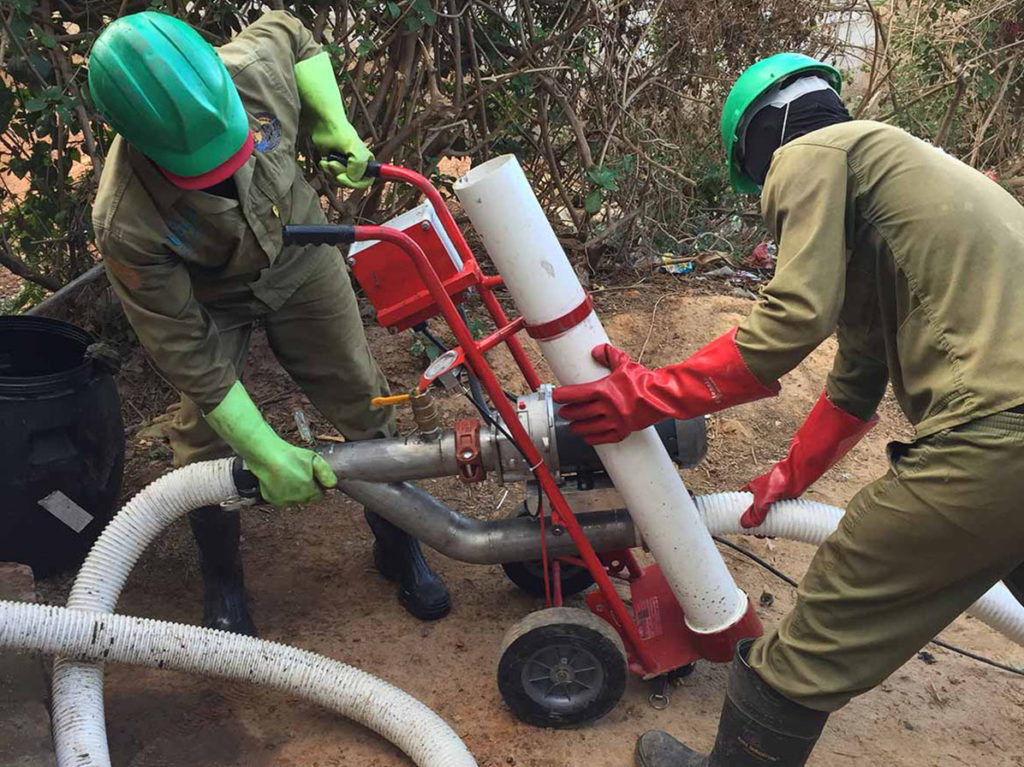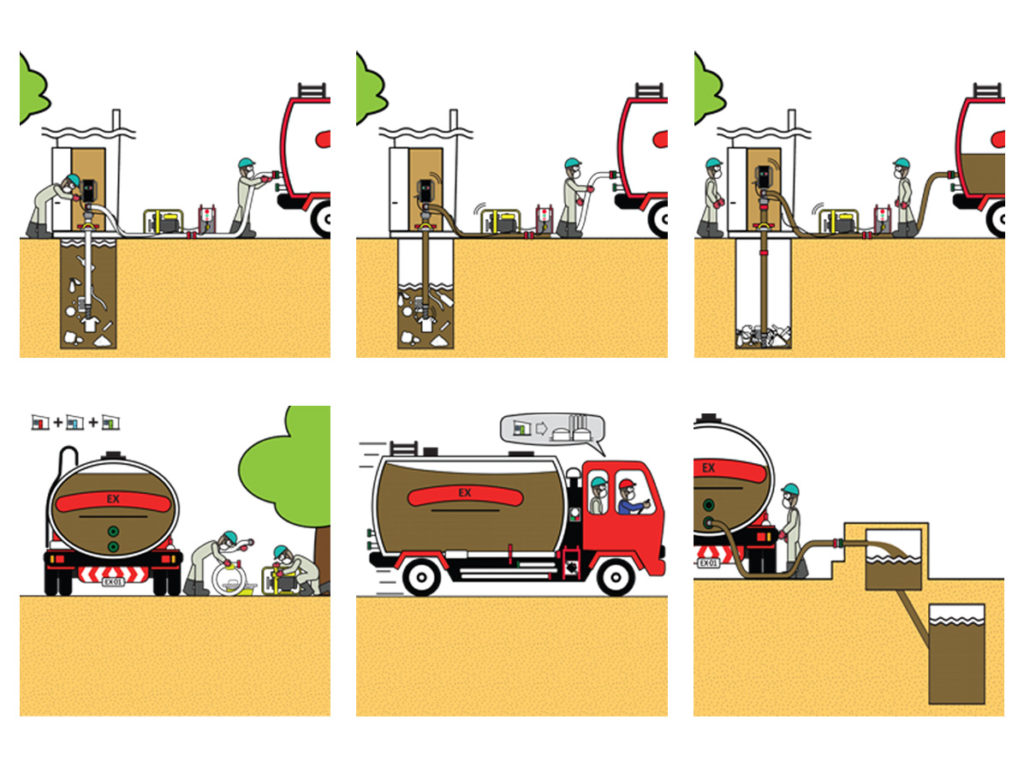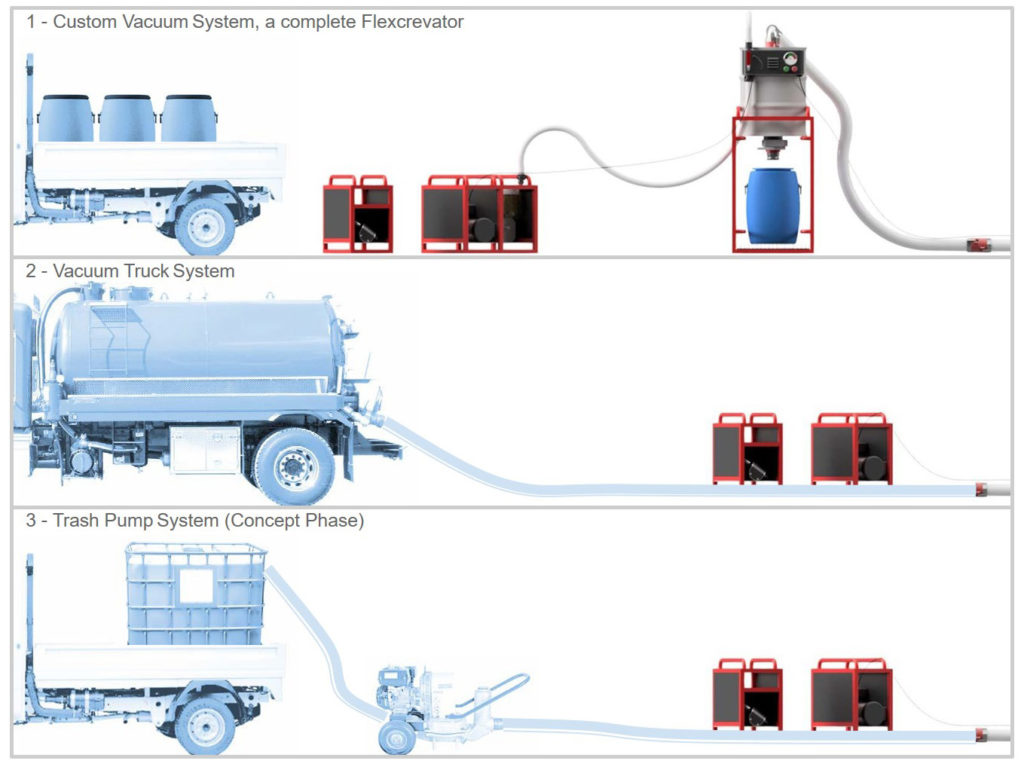Sanitizing The Dirtiest Job On Earth
Client/Funder:
North Carolina State
Location:
Nairobi, Kenya
Catapult Service Line:
Design
Thematic Area:
Wash
Challenge
According to a study published in 2013, an estimated 1.7 billion people, primarily in developing nations, rely on pit latrines, a simplified toilet that collects feces in a hole in the ground. While the positive health impacts of using a well-designed latrine are well documented, proper management of fecal sludge remains a persistent challenge in many developing nations. Consequently, an engineering research team at North Carolina State University received funding from the Bill & Melinda Gates Foundation to improve a prototype and field test a novel pit latrine excavation technology that can access remote areas.
Work
To advance the technology developed by the research team into a commercial product, North Carolina State and Catapult Design teamed up to improve the pit latrine excavation device from a human factors and manufacturing lens. Working alongside fecal sludge management operators in Zambia, Malawi, and Kenya, the team tested successive iterations of NC State’s technology to make it more intuitive to use, simple to maintain, and possible to manufacture at an accessible price point. We also created systems maps and storyboards to assist in the communication and analysis of the previous, current, and future fecal sludge management systems.
Results
Together we took NC State’s technology a significant step closer towards a commercial product and viable solution for improved fecal sludge management. We also increased their capacity to communicate the value-add and details of their product both internally and externally. Further rounds of testing are currently underway in Rwanda, Madagascar, and Ghana to prove their technology, and we continue to support them in these efforts. For more info, check out NC State Professor Francis de los Reyes’ TED talk on sanitation.


